G20 Summit overshadowed by Paris attacks
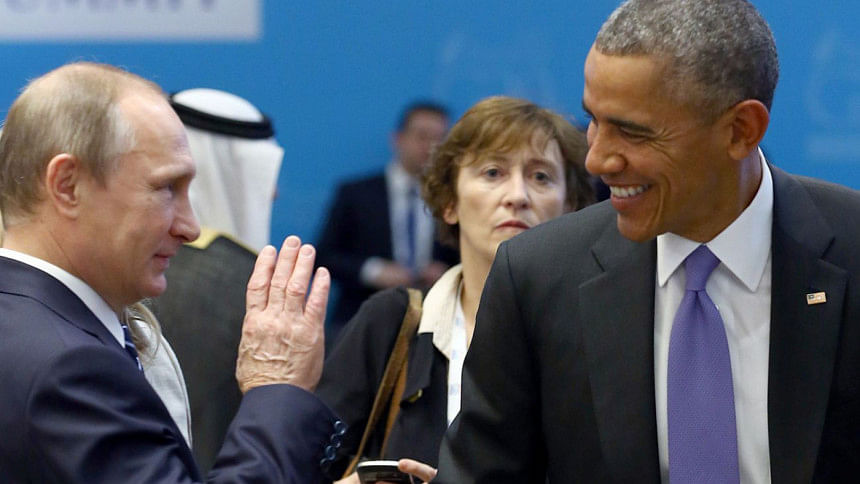
Turkish President Tayyip Erdogan hosted the tenth G20 Summit in Antalya from November 15-16, 2015. It was a gathering of leaders of 20 advanced and emerging economies of the world representing 85 percent of global GDP and 75 percent of world trade. The primary focus of the forum was to deliberate on global economic and financial cooperation.
It was held in the backdrop of several terrorist attacks in France and the Middle East – the attack in 6 different locations in Paris on November 13 causing 129 deaths; an earlier bomb blast in Ankara on October 10 that killed 100 people; the Russian plane brought down by a bomb in Sinai on October 31 that killed 224 passengers; and the Beirut bomb blast on November 12 that claimed 43 lives.
The agenda of this Summit was strengthening global recovery and lifting potential; enhancing resilience; and buttressing sustainability. The 27-paragraph final Communiqué speaks about the three pillars around which the agenda was adopted. They are implementation of past commitments; boosting investment as a driver of growth and inclusiveness of G20 actions so that the benefits of growth are shared by all.
On strengthening the recovery and lifting the potential the Communiqué pledged to use all their policy tools to tackle uneven economic growth. The leaders have committed to lift collective GDP by an additional 2 percent by 2018. The Group reiterated that WTO is the backbone of the multilateral trading system and should play the central role in promoting economic growth and development.
To enhance resilience the Group shall take a number of steps to enhance stability of financial system. The Group vowed to remain intolerant towards corruption. The Communiqué speaks about a package of measures to tackle corporate tax avoidance, particularly loopholes that multinational exploit.
And to buttress sustainability the Group has committed to ensuring contributions for inclusive and sustainable growth in low income countries. The leaders are dedicated to Agenda 2030 to implement SDGs "to eradicate poverty and build an inclusive and sustainable future for all".
However, there have been criticisms over the inability of G20 to halt the recessionary tendencies overtaking the global economy. Growth has fallen below predictions in China, Japan, EU, the US and poor countries, primarily because of weak demand leading to contraction of world trade. Organisation for Economic Cooperation and Development (OECD) has revised downward its forecast on global growth recently.
Some of the participating leaders have trouble back home. Chinese President Xi Jinping attended the meeting as the Chinese economy shows signs of slowing down. With oil prices below $50 per barrel Saudi King Salman will have to remain content with lower revenues. Japan's Shinzo Abe is facing deflationary pressure. His Abenomics has failed to stimulate the stagnated Japanese economy. President Dilma Rousseff of Brazil is faced with runaway inflation and deepening recession, while her Argentinean colleague President Cristina Kirchner is faced with an economic meltdown. Russia remains in recession because of Western sanctions.
The other disappointment with the Communiqué was its weak message on boosting renewable energy, climate change or ending fossil fuel subsidies. The leaders did commit to limit temperature rise to 20C but did not indicate how hundreds of billions of dollars would be raised for the 'Green Climate Fund'. The Climate Change Conference (COP 21) is scheduled to be held in Paris from November 30 - December 11, 2015.
The Summit most significantly released a 9-paragraph statement strongly condemning the attack in Paris, offering condolences to the victims and their families. The leaders agreed to cut off channels of funding terrorist organisations, step up aviation security and impose strict border controls to stop terrorist movements. The Summit recognised its obligations under the UN Charter and obligations under international law related to human rights, refugees and humanitarian law in preventing and suppressing terrorist acts. The statement, curiously, refrained from mentioning ISIS by name, though ISIS has claimed responsibility for all attacks and President Hollande has also accused ISIS for the massacre in Paris.
Naturally, apart from formal deliberations, non-agenda discussions on terrorism dominated the Summit, particularly the attacks on Paris. ISIS has transformed into a global security threat and has triggered unprecedented migration of people from the Middle East to Europe. Leaders, particularly President Obama, President Erdogan, PM David Cameron and others were preoccupied on how to deal with ISIS.
What was significant was the intense discussion between Obama and Putin on the sidelines of the meeting. Terrorist attacks perpetrated by ISIS have driven these two opposing leaders to close ranks to defeat ISIS. Both the leaders vowed to eliminate ISIS. President Obama, addressing the press conference, however, has categorically rejected the idea of deploying US forces in Syria.
President Putin, who was ostracised by the West because of Moscow's intervention in Ukraine, is now an important interlocutor of the West. Both Washington and Moscow want to destroy ISIS. However, their differences on the fate of Bashar al-Assad remain.
French President Francois Hollande skipped the Summit to deal with the emergency proclaimed in France following the massacre. "France is at war… Our response to ISIS must be merciless… but it must also be strategic so we don't fall into their trap," declared Hollande. Hollande has announced that he will travel to Washington and Moscow to speak to Obama and Putin to develop strategies on how to defeat ISIS.
The Communiqué contains clichés and jargon that is seen in documents issued after such international colloquy. The Communiqué was, in fact, a public relations exercise which hid the scale of the global economic malaise.
By hosting the Summit, Erdogan has projected that Turkey is not only important regionally but a bridge between the East and the West. But how far the Summit decisions will improve the global economy remains to be seen.
The writer is former Ambassador and Secretary.

 For all latest news, follow The Daily Star's Google News channel.
For all latest news, follow The Daily Star's Google News channel. 


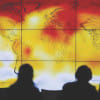
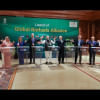
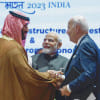
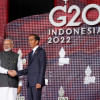

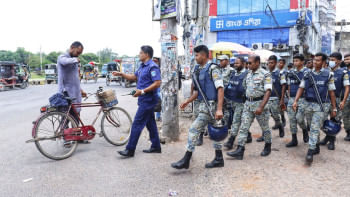
Comments